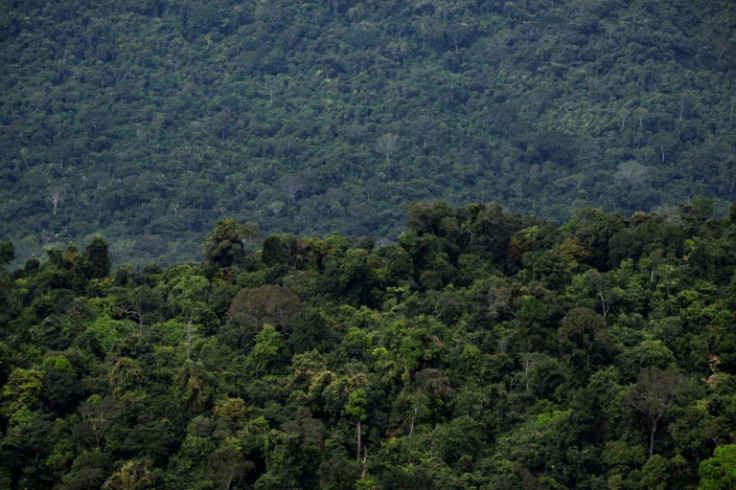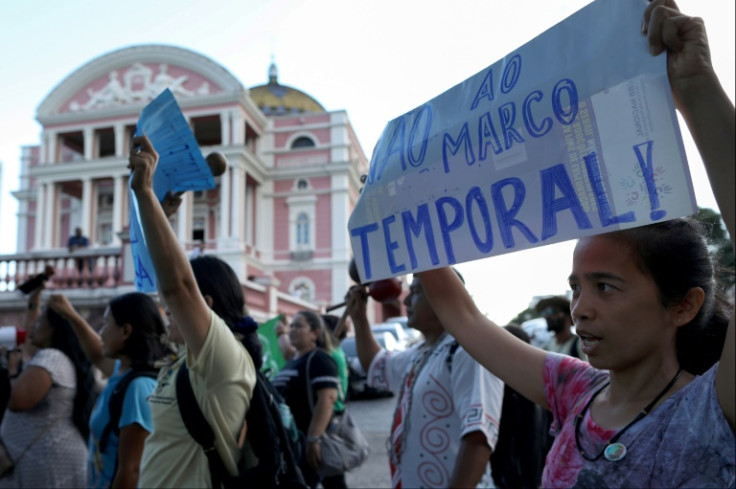Brazil Lawmakers Vote To Limit Demarcation Of Indigenous Reserves

Brazil's lower house of Congress approved legislation Tuesday that would limit expanded demarcations of Indigenous lands, which are considered key to protecting the Amazon and its native peoples.
The text, passed by the Chamber of Deputies on a 283-155 vote, establishes that reserves can only be on land occupied by Indigenous people at the time of the promulgation of the current constitution, in 1988.
The bill, which has yet to move to the Senate, was promoted by representatives sympathetic to the agribusiness sector and other opposition groups, and represents a setback for President Luiz Inacio Lula da Silva's environmental goals.
According to scientists, Indigenous lands create key buffer zones against deforestation in the Amazon, the largest tropical forest in the world.
Hours ahead of the vote, about 100 indigenous people temporarily blocked a highway on the outskirts of Brazil's largest city Sao Paulo, before the police dispersed them with tear gas, according to images broadcast by local TV.
Brazilian Indigenous communities reject the premise of the bill, arguing they have the right to their original territories, regardless of the status of their occupation in 1988.
Critics say many Indigenous peoples did not occupy certain areas that year because they had been expelled during the preceding military dictatorship, which ended in 1985.
There are a total of 764 Indigenous territories in Brazil, but around a third of them have not yet been demarcated, according to figures from the National Foundation for Indigenous Peoples (FUNAI).
Lula recognized six new territories in April, the first in five years after Indigenous rights stalled under far-right former president Jair Bolsonaro.
The Chamber of Deputies vote sparked protests in Brazil including in Manaus, the largest city in the Amazon region. It also drew the attention of international NGOs and activists, including American actors Leonardo Di Caprio and Mark Ruffalo.
The government of Brazil "is being attacked by agribusiness," Ruffalo tweeted ahead of the debate. "There is a war against Indigenous peoples and forests. Our planet is at risk."
Brazil's Minister of Indigenous Peoples, Sonia Guajajara, said Tuesday that the bill "is a genocide against Indigenous peoples, but also an attack on the environment."
She added that she would keep fighting as the bill heads to the Senate.

© Copyright AFP 2024. All rights reserved.





















